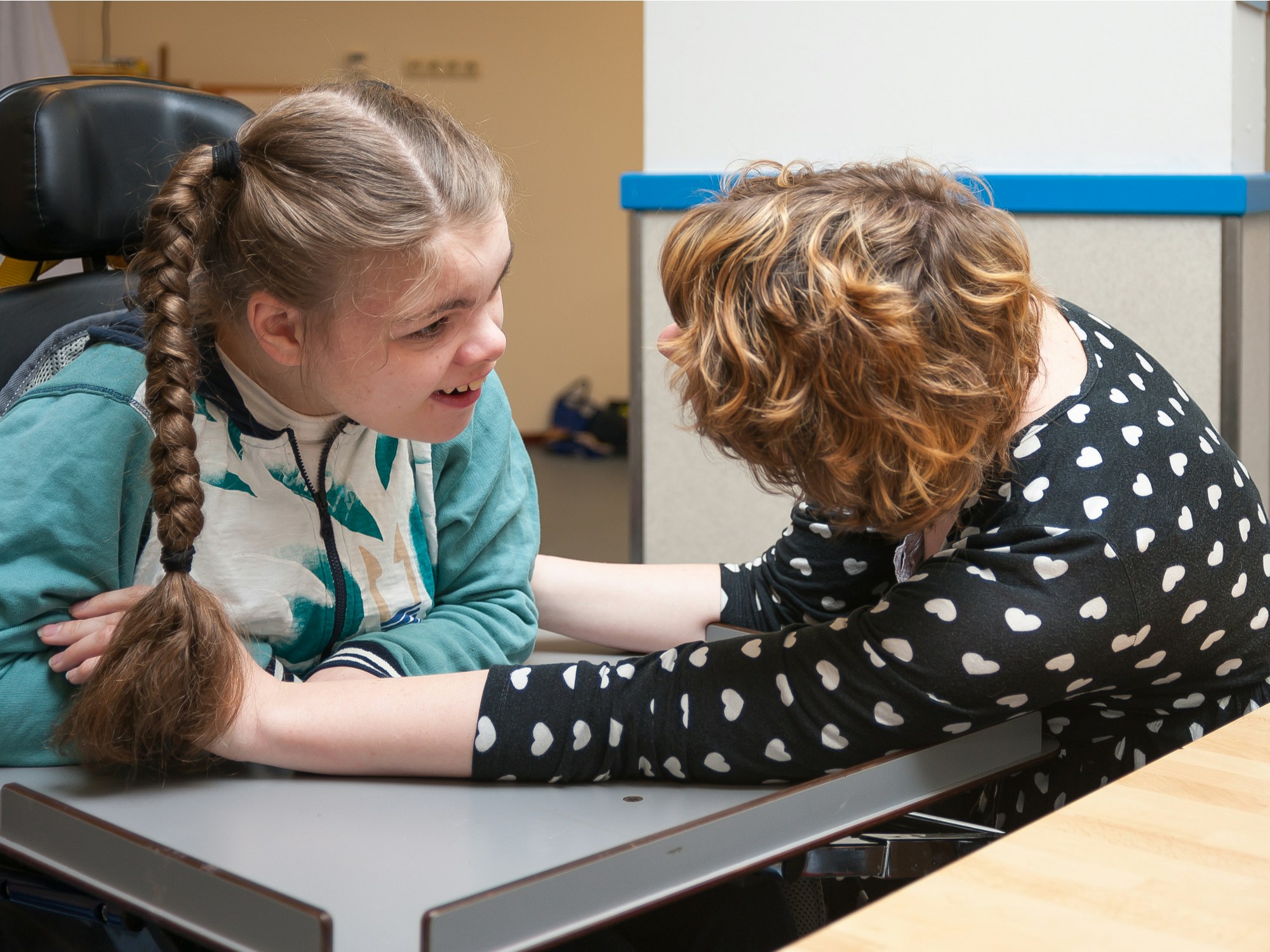Accessing respite services for someone with a disability
Last updated

Respite or respite care is when someone else takes over the caring role so that a carer can have a break. It may be because they need some time to go to appointments, because of illness or an emergency, or simply for both of you to have a break.
Key points
- Respite is when someone else takes over the caring role from your usual informal carer
- There are several different respire options available
- Some respite services are free, while others are not
What is respite care?
Respite care gives both a carer and the person they look after the opportunity to have a break.
Respite services or friends and family can offer respite care. It can take place in the community, at a centre, or in your own home.
Respite can be for a short time, for example for a few hours each week, or for a longer time, including overnight, and it can also be a once-off or regular occurrence.
There are a number of different formal or informal respite options available and the best one will depend on individual needs and preferences.
Formal respite options include:
- In-home: This is where the respite carer will come to your home to take over your carer’s duties. Respite could be for a few hours once a week, for more extended periods, or overnight.
- Centre-based: This is where you go to a centre for part of the day to be cared for in a group setting. Centres or clubs often organise group activities and outings. This gives the person receiving care the opportunity to socialise with other people.
- Overnight or weekend: Overnight or weekend respite can be provided in many ways. This type of respite can be provided in several settings, such as in your own home, in the home of a host or in short term respite accommodation.
- Community access: Community access respite provides you with respite while also giving the opportunity to participate in social experiences. This can include activities to help develop independent living and social skills.
- Residential: Residential respite is when you go to stay in a facility to be looked after. These facilities include supported accommodation.
- Emergency respite: If your carer is not able to look after you due to sudden illness, death, accidents, or family troubles, emergency respite is available to assist with care.
Informal respite options can include:
- Friends or family: This is when you’re looked after by friends or family members either for a short time, for example, if a carer needs to attend an appointment or for a longer period.
- After-school and vacation care: A school-aged child with disability may be able to attend after-school and vacation care programs for a few hours. These programs can receive support from the Australian Government’s Inclusion Program.
Finding and accessing respite
Respite offers an excellent opportunity for both the carer and person receiving care to have a break, but it can be a big change. That’s why when you are looking at respite options it’s important you talk with your carer to find an arrangement that suits both parties.
When planning for the respite, plans should be made in advance as places can fill up quickly. Planning also means that both the carer and the person they care for know when the respite break is coming up.
Accessing respite may mean needing to talk to several different service providers to find the right one.
The National Disability Insurance Scheme (NDIS) may be able to fund respite care services as a part of an NDIS plan. If the person being cared for is over 65 and does not have access to the NDIS, My Aged Care may be able to fund respite.
Respite care can be found in a local area by contacting:
- Carer Gateway on 1800 422 737
- Disability Gateway on 1800 643 787
- A state or territory disability service
- An NDIS Local Area Coordinator
- Carers Australia on 1800 242 636
- Your local council
It’s a good idea to make an emergency care plan, in case someone else suddenly needs to take over from your carer in an emergency.
An emergency care plan should include personal information, details of any emergency contacts, a list of medications and health history, any care needs, and anything else someone taking over will need.
Funding respite care
Some respite services are free, while others will need to be paid for through NDIS funding or through private funding. The cost of respite care will depend on the length of time involved, the provider, and the type of respite care being offered.
Speak to the service provider beforehand to discuss the costs involved with care. The fee should be set before any care starts.
There are a number of ways that respite care can be funded. This can be through the Government or through self-funding.
There are also places you can contact for help with costs:
- Carer Gateway can be contacted on 1800 422 737. They can provide information on understanding funding for respite
- In an emergency, Carer Gateway may be able to help with finding respite and financial assistance
- Some services or providers may offer subsidised or free services. In order to do this, they may need to assess any income and assets to see if someone can afford the service. Speak to the service to see if they can offer this
- If included in a plan, the NDIS may also be able to help cover the costs of respite care
Some organisations offer private respite services that mean payment will be made in full. Each organisation will set their own fees.
Have you had to access respite? Tell us about your experiences below.
Related content:
Short term accommodation and respite under the NDIS
Respite
Carer support
Financial support